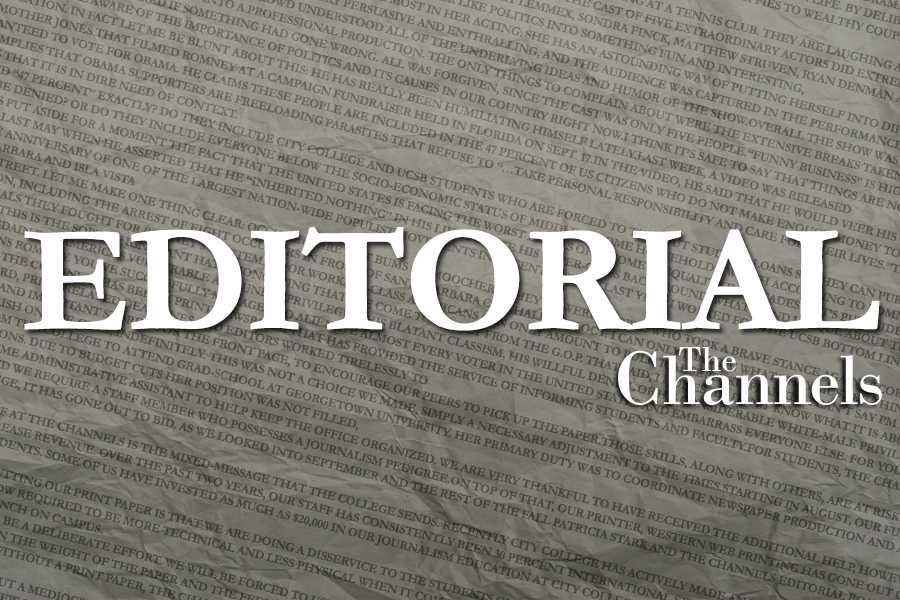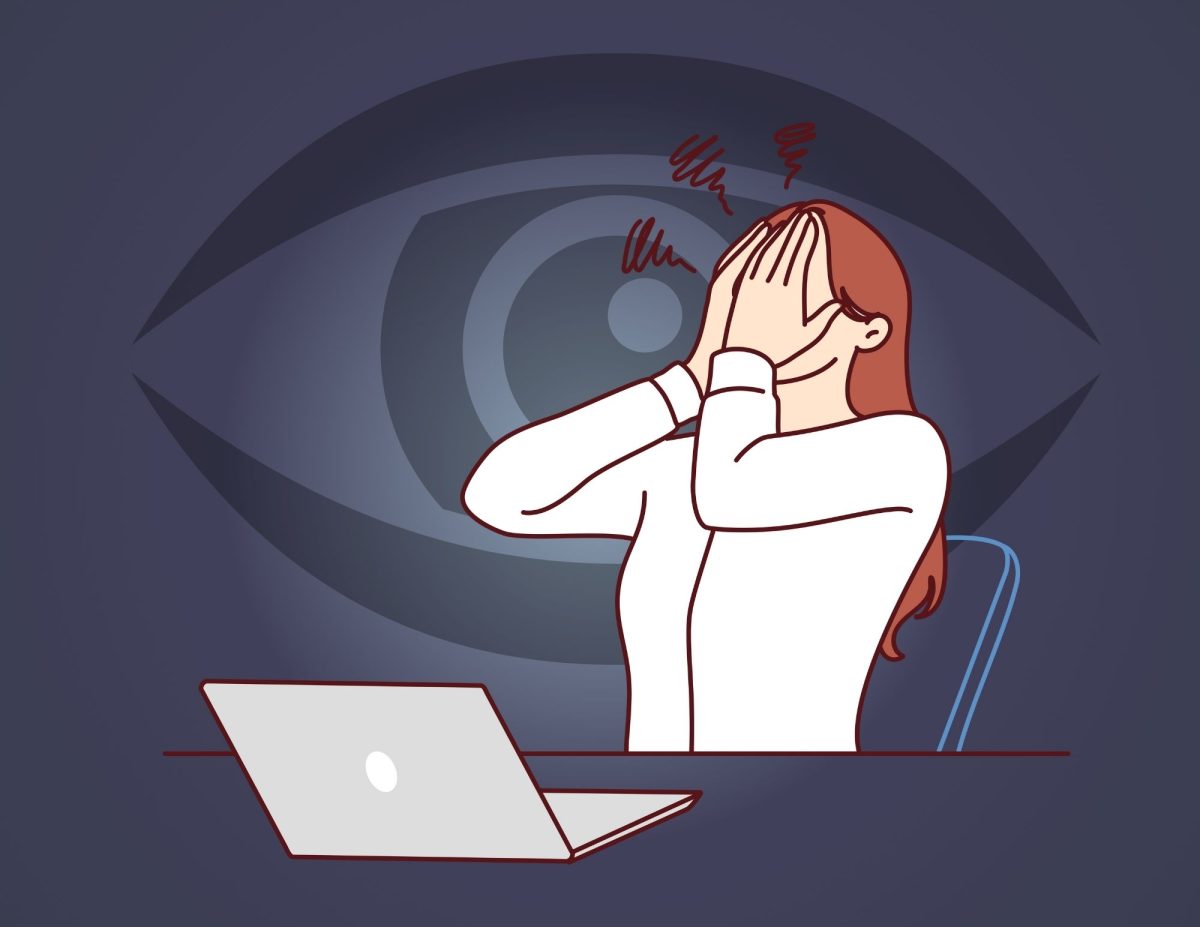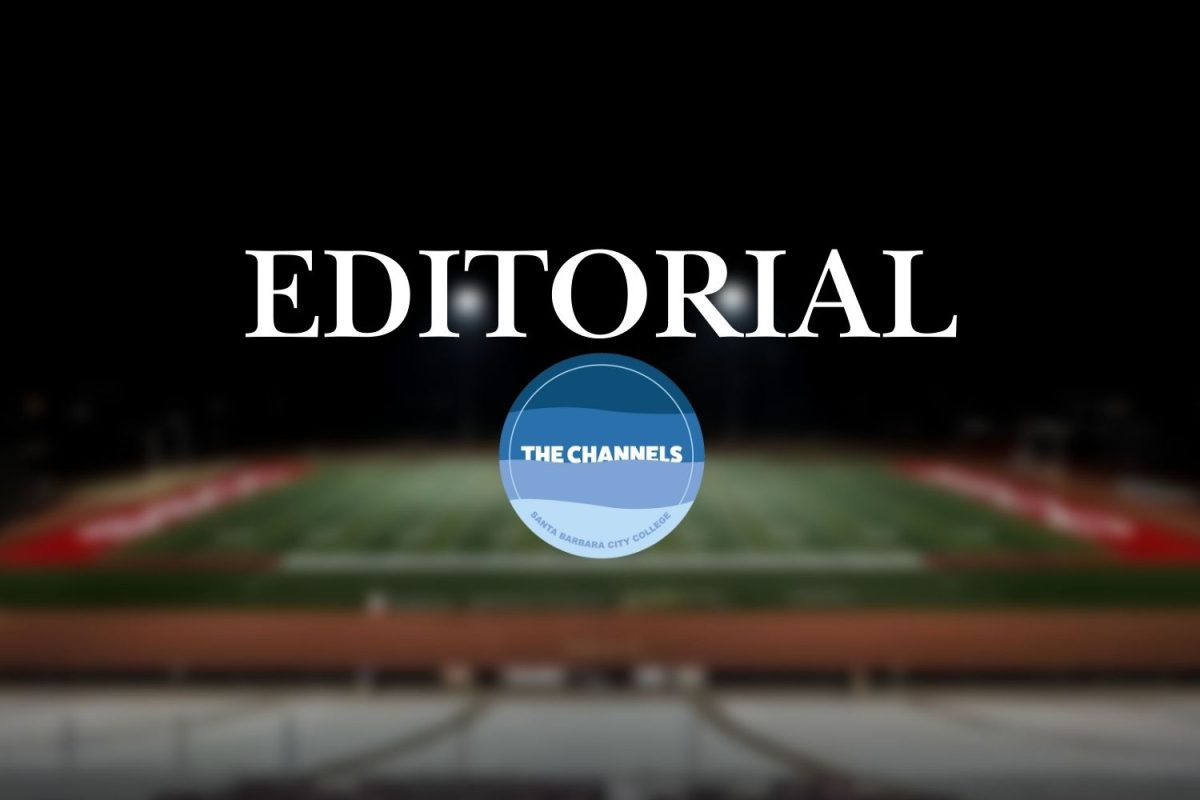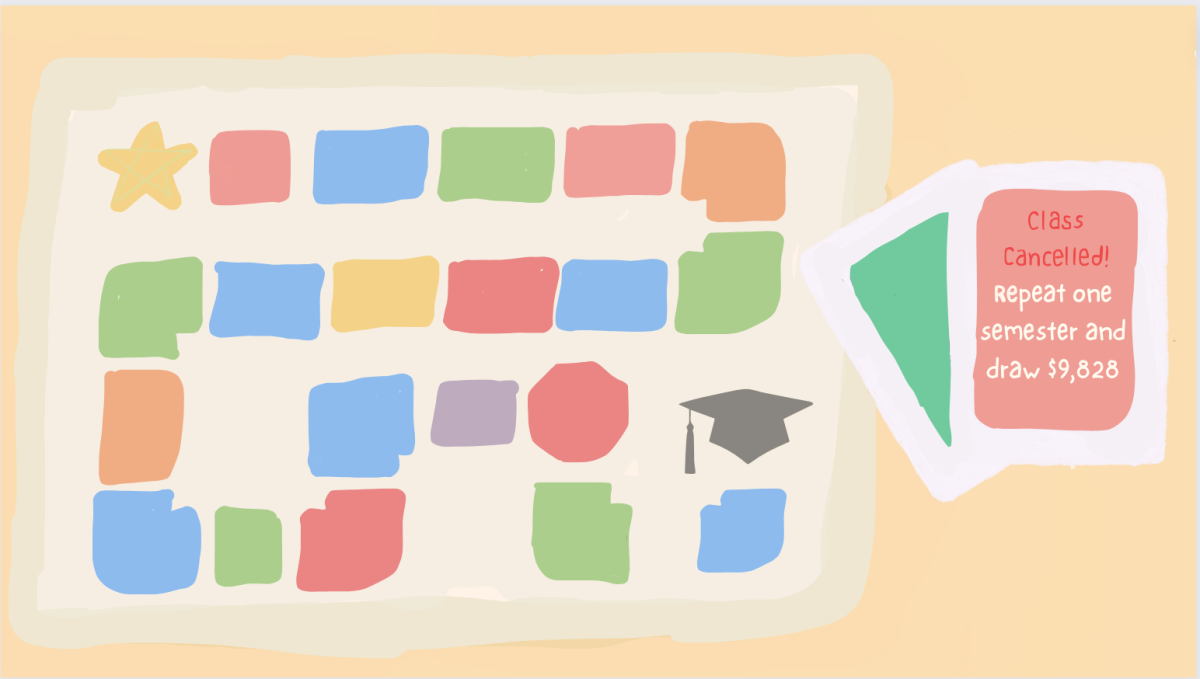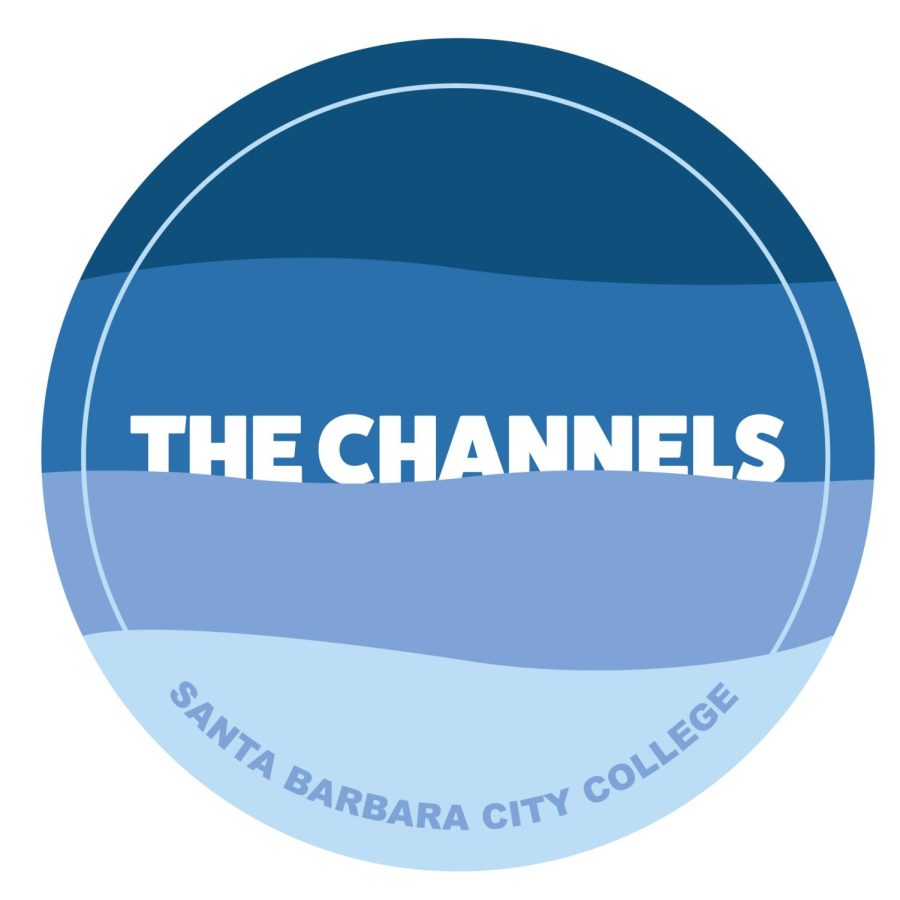The College is proposing to update the terms addressing sexual or romantic relationships between teachers and current students in Administrative Procedure 3430, a policy prohibiting harassment on campus.
The current policy states that teacher-student relations are “discouraged,” but the new version would specify that, if reported by anyone (including other students or teachers), these relationships could be investigated under Title IX and the teacher could be fired if found to have abused their power.
The Channels Editorial Board strongly supports this change in language. Teachers are inherently in a position of power over the students enrolled in their classes, and determine not just grades for individual assignments but for the whole course. If a teacher is romantically involved with a student in their class, they might favor them in terms of grading. That student might also threaten to report the relationship if they don’t get a good grade.
With the #MeToo and #TimesUp movements calling attention to sexual harassment within the workplace, the board policy revision is a sign City College wants to be on the right side of this moment in history.
The use of the word “pursue” in reference to teacher-student relations has also caused some people confusion, the misconception being that these cases could only be investigated if the teacher initiates the romantic relationship. The reality is whether the student or the teacher initiates, the teacher is held responsible because they would have to decide to engage with the student in a sexual or romantic way.
At the same time, the board policy doesn’t bar teachers from dating or engaging with a student as long as that student is not currently in their class. There are no rules against a relationship beginning after the course is finished.
The majority of students are adults, and are able to consent to a relationship with another adult, but instructors also have a responsibility to be professional and provide a safe learning environment. A teacher approaching a student in a sexual way could make the student feel extremely uncomfortable. That student may even be a minor as the Middle College Program on campus allows high school students to take classes and use our facilities.
The goal behind the policy rewrite is to better address power dynamics when it comes to grades and fair learning environments. It won’t bar teacher-student relationships in general, so you can still act on that fantasy about your professor, just after they’ve submitted the classes’ final grades.
Correction: March 16, 2018
An earlier version of this story incorrectly stated that AP 3430 is a new board policy. This version has been corrected to show it is an administrative policy. The Channels regrets this error.


